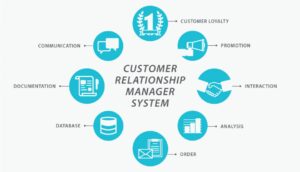Business owners face mounting pressures managing daily operations. Research shows 72% of entrepreneurs experience burnout from handling too many tasks simultaneously. The solution lies in strategic delegation, a practice top business leaders use to regain control of their time and accelerate growth.

The Real Cost of DIY Business Management
Small business owners spend an average of 68.1% of their time on day-to-day tasks rather than strategic planning or growth initiatives. This operational overload leads to missed opportunities and stunted business development.
The financial impact hits hard too. Business owners who handle everything themselves limit their earning potential. Time spent on $20-per-hour tasks prevents focus on $200-per-hour strategic work that drives real business value.
Mental and physical health also suffer under excessive workloads. Studies reveal 45% of entrepreneurs report health issues directly related to stress from work overload. This affects decision-making ability and leadership effectiveness.
Strategic Delegation: The Game-Changing Approach
Strategic delegation goes beyond simply handing off random tasks. It requires a systematic approach to identifying, assigning and managing delegated work. This method helps business owners focus on core strengths while empowering team members.
Successful delegation starts with proper task assessment. Business leaders must evaluate which activities truly require their direct involvement versus those that can be handled by others. This analysis often reveals numerous opportunities to delegate effectively.
The right delegation strategy creates a multiplier effect. When owners delegate properly, they create space for high-value activities while developing team capabilities. This builds a stronger, more capable organization.
Building Your Delegation Framework
Creating an effective delegation system requires clear processes. Start by documenting standard operating procedures for common tasks. This provides a foundation for consistent execution when responsibilities transfer to others.
Next, identify team members’ strengths and development areas. Match tasks to individuals based on their capabilities and growth potential. This alignment increases success rates and builds employee engagement.
Regular communication maintains delegation effectiveness. Schedule check-ins to monitor progress, provide feedback and adjust approaches as needed. This keeps projects on track while building trust between all parties.
Technology’s Role in Modern Delegation
Modern technology platforms streamline delegation processes. Project management software, communication tools and automation systems remove friction from task handoffs and tracking.
Customer relationship management (CRM) systems centralize customer data and automate follow-up processes. This allows business owners to delegate customer service and sales tasks while maintaining quality standards.
Cloud-based collaboration tools enable real-time coordination between team members. This transparency helps leaders monitor delegated work without micromanaging.
Measuring Delegation Success
Track key metrics to assess delegation effectiveness. Monitor time savings, task completion rates and quality outcomes. This data guides ongoing refinement of delegation strategies.
Survey team satisfaction levels regularly. High employee engagement correlates strongly with successful delegation programs. Address concerns promptly to maintain positive momentum.
Calculate return on investment from delegation initiatives. Compare costs of delegated work against time freed for revenue-generating activities. This demonstrates the business case for continued delegation.
Common Delegation Pitfalls
Many business owners struggle with perfectionism when delegating. Learning to accept “good enough” results proves challenging but necessary for scaling operations.
Insufficient training causes delegation failures. Invest time upfront to properly prepare team members for new responsibilities. This initial effort pays dividends through smoother execution later.
Unclear expectations lead to disappointing outcomes. Provide specific guidelines, deadlines and quality standards when delegating tasks. This clarity helps ensure desired results.
The Virtual Assistant Advantage
Virtual assistants offer flexible, cost-effective delegation solutions. These professionals handle administrative tasks, customer service, social media management and more.
Modern virtual assistant services provide vetted, trained professionals ready to integrate into existing operations. This reduces onboarding time and accelerates productivity gains.
Virtual teams scale easily to match business needs. Add support during busy periods without long-term commitments. This flexibility helps optimize delegation costs.
Creating Your Delegation Action Plan
Start small when implementing delegation strategies. Choose straightforward tasks with clear processes. Build confidence through early successes.
Document everything delegated team members need to know. Create detailed procedures, login credentials and contact lists. This resource library supports smooth task transitions.
Establish performance standards and review processes. Regular evaluations help maintain quality while identifying areas for improvement.
Maximizing Time Reclaimed Through Delegation
Focus newly available time on strategic planning and business development. Research shows companies with formal growth strategies outperform peers by 30%.
Invest in relationship building with key clients and partners. Strong business relationships drive referrals and repeat business opportunities.
Pursue professional development and networking. Staying current with industry trends helps identify new growth opportunities.
Building a Self-Sustaining Business
Effective delegation creates organizational resilience. Teams learn to operate independently, reducing reliance on the business owner.
Cross-train team members on critical functions. This redundancy maintains operations during absences or transitions.
Document institutional knowledge and best practices. This intellectual property becomes a valuable business asset.
The Path Forward
Business owners ready to reclaim their time through strategic delegation have clear next steps. Begin with a thorough assessment of current activities and potential delegation opportunities.
Identify tasks consuming excessive time with limited strategic value. These represent prime delegation candidates. Calculate potential time savings and return on investment.
Partner with experienced delegation specialists who understand your business needs. Professional support accelerates implementation and improves outcomes.
Ready to transform your business through strategic delegation? Our team helps overwhelmed business owners regain control of their time and accelerate growth. Schedule a strategy call to learn how we can help you reclaim 20+ hours every week. Contact us at (813) 723-4533 or fill out our form to schedule your call with us.






